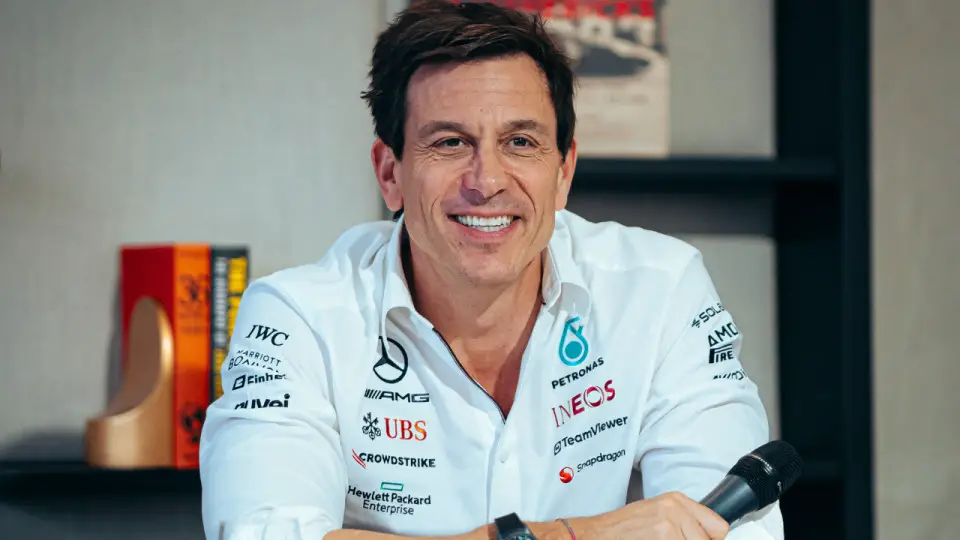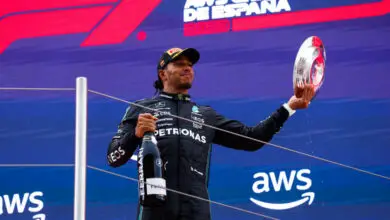Toto Wolff’s Potential Stake Sale in Mercedes: A Billion Euro Decision
Recent developments suggest that Mercedes team principal Toto Wolff may be considering selling his substantial stake in the Formula 1 team. This move could have major implications for the sport’s financial future.
Key Takeaways:
- Growing Concerns Over Market Peak: Craig Slater from Sky Sports F1 highlights increasing worries among F1 team owners about the future value of their investments, spurred by doubts over the longevity of F1’s current popularity surge.
- Andretti Cadillac’s Entry Altering F1’s Financial Landscape: The addition of Andretti Cadillac to the F1 lineup could change the revenue-sharing dynamic, potentially prompting owners like Wolff to sell their shares while the market is favorable.
- Wolff’s Profitable Investment Journey: After nearly a decade since investing in Mercedes F1, Wolff stands to gain billions, thanks to the team’s significant increase in value.

In the world of Formula 1, the rumbling of a major financial shakeup is becoming louder. Toto Wolff, the Mercedes team principal, is reportedly pondering the sale of his 33% stake in the team. This news was brought into the spotlight by Craig Slater, a journalist for Sky Sports F1, who noted its potential to significantly alter the sport’s economic framework.
On the Sky Sports F1 podcast, Slater delved into the heart of the matter, discussing the underlying concerns driving this speculation. The overwhelming success of the Netflix series ‘Drive to Survive’ has catapulted F1’s popularity to new heights. However, there’s a looming fear among team owners that this surge might not last, potentially leading to a decline in the value of their stakes. This apprehension is causing a stir, with owners contemplating whether the market for F1 teams has reached its zenith.
The introduction of Andretti Cadillac as the eleventh team in Formula 1 heralds a shift in the sport’s economic dynamics. This development could be a catalyst for team owners to consider cashing in on their investments while the conditions are still favorable. Toto Wolff’s situation is particularly noteworthy. His investment in Mercedes, made almost a decade ago, has grown exponentially in value, positioning him for a potential windfall in the billions of euros.
Slater’s observations stem from conversations with insiders deeply entrenched in the F1 arena. His words on the podcast paint a vivid picture of the current sentiment among F1’s elite:
“One or two well-placed insiders have told me that maybe some ownership within Formula 1 have looked at the value of their team has increased and have asked the question, has the sport peaked? Might this be not a bad time to kind of sell out?
“If you’re talking about Williams being sold for about £140million and now being worth towards maybe even a billion pounds, never mind dollars nowadays.
“It’s interesting that [the] Andretti [family] have tried to get in, maybe would be put off by the price tag of buying a team. Are they good value to buy right now an F1 team? Why are the big sovereign wealth funds… and I suppose people are talking about [the rumours of] Aramco buying Aston Martin from Lawrence Stroll and paying top dollar for that.
“If you were Dorilton or Toto Wolff or Lawrence Stroll, who bought it via liquidation, yes, he paid off a lot of the creditors, but you’ve maybe paid a couple hundred million, or I think Toto paid 50million euros for his stake, it’s now worth three billion or whatever.
“Does that have its own incentive to sell, when in a few years you’ve made such a big gain, which is why I question, it must be quite tempting for some of these owners to maybe think about offloading it in the present climate, which is certainly benign compared to where it was a few years ago.”
In conclusion, the potential sale of Wolff’s stake in Mercedes marks a pivotal moment in the business side of Formula 1. It underscores the volatile nature of sports investments and highlights how quickly fortunes can turn in this high-stakes world. As the sport continues to evolve, the decisions of its leading figures like Wolff will undoubtedly shape its economic landscape for years to come.


